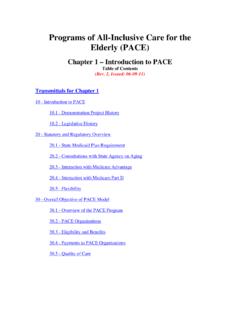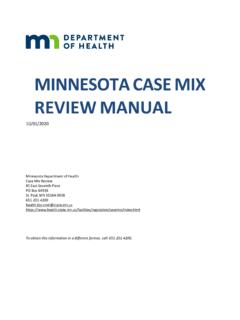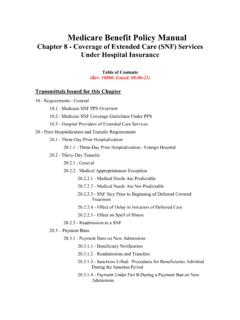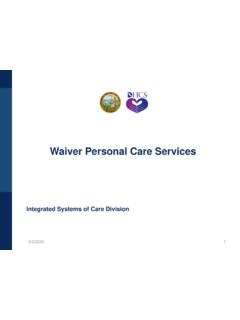Transcription of PREPARING LETTERS OF MEDICAL ... - Prime Engineering
1 1 PREPARING LETTERS OF MEDICAL justification Key Components That Will Support the Need for Durable MEDICAL Equipment Through Medicaid and Other Third Party Insurers Our June/ july 1998 issue of AT Advocate focused on report writing to justify the need for assistive technology (AT). We offered suggestions on writing reports for MEDICAL justification , educational needs, and vocational rehabilitation needs. Because we respond to so many questions regarding Medicaid funding of AT, the main topic of this updated and expanded newsletter will be the letter of MEDICAL justification or MEDICAL necessity, often abbreviated as the LMJ or the LMN.
2 In most cases, what we think of as AT is referred to as durable MEDICAL equipment (DME) by Medicaid, Medicare, and private insurance plans. The focus of this article will be on justifying the need for DME through Medicaid. While most of the principles laid out below will apply equally to LETTERS of MEDICAL justification for Medicare and private insurance plans, this is not universally true. For this reason, we will make some references to how differences in funding criteria could dictate a change in the way a letter is written.
3 This article should be a helpful reference to attorneys and advocates who must counsel health care professionals on what needs to go into a good letter of MEDICAL justification . This article is also intended for use by any health professional who is expected to write LETTERS of MEDICAL justification that will support the need for DME or other specialized equipment. It should be a useful tool to the MEDICAL doctor, physical therapist, occupational therapist, speech pathologist, and a range of other professionals who are involved in assessing the need for DME.
4 2 Who Will Review the Letter or Report? When we seek a letter of MEDICAL justification , we may assume that the reviewer has a MEDICAL background and will automatically understand and agree with the writer s MEDICAL opinion. This might be true if the health professional is referring a patient from physical therapy to occupational therapy or from a pediatrician to a rehabilitation specialist. However, this is not always the case when the writer is seeking payment for DME. With both Medicaid and private insurance plans, the first reviewer should be a health professional but we cannot assume this reviewer will be a MEDICAL doctor or have a background in prescribing DME for patients.
5 With Medicaid, the agency s reviewers may include nurses, physical therapists, or other health professionals. One regional Medicaid office in New York, for example, uses a licensed dentist for most of its DME reviews. Keep in mind that this reviewer is likely to view part of their job as keeping the outflow of funds under control. With Medicaid, if the prior approval request is denied and goes to a fair hearing, it will be reviewed by an administrative law judge (ALJ), hearing officer, or hearing referee (we ll reference the ALJ throughout as the individual typically presiding over the hearing).
6 If the hearing decision is unfavorable and the case is appealed in court, it will be decided by a judge or panel of judges. Most ALJs and all judges are trained as attorneys; it is unlikely they will have MEDICAL backgrounds. In order to save precious time for the individual with a disability, the health care professional needs to write a letter of MEDICAL justification that can withstand different 3 levels of review as it is passed from the first reviewer, to possibly a second reviewer, into an appeal process like a fair hearing and even, possibly, into court.
7 Establishing the Professional Appearance of the Report Administering to the needs of individuals with disabilities can be a time-consuming job and many health professionals tend to overlook the small details in their LETTERS of MEDICAL justification . However, taking extra time to pay attention to detail will help in getting the reviewer s attention. The writer must impress upon the reader that his or her report is worthy of value and respect - - , that it is written by a professional. Since the reviewer will learn about the patient primarily through this letter, the writer wants to impress upon the reviewer that this is a document written in a professional manner, representing the writer s authority to make valued MEDICAL decisions in relation to the patient s MEDICAL needs.
8 This starts with the physical appearance of the document. The following should be a starting point of every letter of MEDICAL justification : If the writer is a professional or works for an organization, the letter should be written on appropriate letterhead. The letter should be dated and signed. White paper should be used to maintain a professional appearance. The letter should be typed, proof read, and neat in overall appearance. The letter will be easy to read if the writer uses appropriate fonts, line spacing, topic headings, etc.
9 Getting Started: Five Key Principles for Writing LETTERS of MEDICAL justification 4 Although many funding sources will require a completed agency form, a supporting letter of MEDICAL justification is often required by a Medicaid agency and is always a good idea. There is no one special format for this letter, but there are some general rules to follow: 1. Prioritize information, getting the important facts at the beginning of the letter. Most readers pay more attention to the first page of a document, the first sentence in a paragraph, and so on.
10 Present the most important pieces of information at the beginning of the letter and in the topic or lead sentences of each paragraph. Also, consider the use of headings as a way to organize information. Headings also offer a way of getting the most important information quickly reviewed. This newsletter, for example, has used different headings to draw your attention to specific information about writing the letter of MEDICAL justification . 2. Stay focused on one issue at a time to avoid confusing the reader. The writer often wants or needs to talk about several different MEDICAL conditions affecting their patient and their many MEDICAL needs in one letter of MEDICAL justification .








